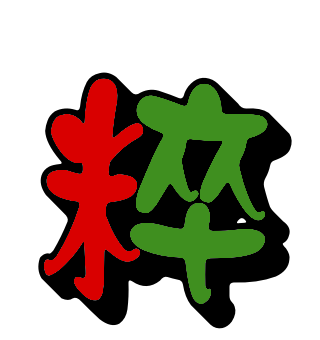 We all have some characters that just refuse to stick and that we keep forgetting over and over. The best way of learning tricky characters in Chinese is to deal with them decisively. For more about how to do that, check the first article in this series.
We all have some characters that just refuse to stick and that we keep forgetting over and over. The best way of learning tricky characters in Chinese is to deal with them decisively. For more about how to do that, check the first article in this series.The most difficult Chinese characters
In this article, I will go through some of the most difficult characters. This difficulty is not based on my opinion, it’s based on statistics fetched from our database. We know which characters Skritter users get wrong most often.
For each character, I will explain:
- Character frequency and basic definition
- Pronunciation
- Character composition and formation
- The component parts and their functions
- Common words and/or phrases for context
- Why the character might be difficult
Previous articles:
16. 粹 (cuì) “pure; essence” (frequency rank: ~2100)
This is a phonetic-semantic compound, so one part represents meaning (the left in this case, which is very common) and one part represents the sound (the right, also common). On the left, there’s 米, which is also the radical. Think of pure rice, free from chaff, pebbles or whatever else might make it impure. The right part is 卒, which is less common on its own in modern Chinese, but the original meaning is soldier or servant.
- 纯粹/純粹 (chúncuì) “pure”
- 国粹/國粹 (guócuì) “national essence; quintessence of national culture”
- 纳粹/納粹 (nàcuì) “Nazi (loanword)”
I’m not sure why students get this character wrong so often, perhaps not having done the above analysis is part of the explanation. There are few other similar characters to mix it up with, only 醉 (zuì) “drunk” is common. If you have a problem remembering this character, I suggest building a mnemonic based on “rice”, “soldier” and “pure”. For example, picture a group of soldiers carefully checking their daily ration of rice, removing anything that makes it impure. A little bit like drug dealers checking the purity of their goods in a film.
17. 饰/飾 (shì) “adorn; ornaments” (frequency rank: ~1800)
Yet again, this is a phonetic-semantic compound; they really are very common! The breakdown of this character is not perfectly clear-cut, but the simplest to remember is probably that it’s 饣(飠) “food” plus 布 “cloth”. The left part is pronounced shí, so only the tone is different; 布 is not hard to relate to decorations.
Some common word words with 饰/飾:
- 服饰/服飾 (fúshì) “clothing and personal adornments”
- 饰品/飾品 (shìpǐn) “jewellery, ornament, accessory”
- 掩饰/掩飾 (yǎnshì) “gloss over”
18. 陵 (líng) “mausoleum; mound” (frequency rank: ~2100)
As were the previous two characters, this is also a phonetic-semantic compound consisting of 阝 and 夌. The left part is the semantic component and requires some explanation. In this compact form, it can actually represent two different characters. If it’s on the left of the character, as in this case, it means “mound”; if it’s on the right of the character as in 都 for example, it means “city”. The right part is not used in modern Chinese, but used to mean “surpass” and is also pronounced líng, so no change from the full character.
陵 is common in many place names; here are some examples (except the first):
- 丘陵 (qiūlíng) “hills”
- 泰姬陵 (tàijīlíng) “Taj Mahal”
- 金陵 (jīnlíng) “(common place name)”
There are several reasons why this character causes confusion. First, the flexible nature of the radical that changes meaning depending on where it is caused at least me a lot of confusion before I figured out how it worked. Second, there are several other common phonetic components that can be pronounced the same way, such as 令, making it hard to choose the right one. 夌 is actually not that common. For me though, it’s simple because my surname is 凌, so I’ve written that component many, many times!
Practise writing the character using the scratchpad!
—
That’s it for today! Do you find these characters difficult? Have you developed good mnemonics for than? Or do you have a question? Leave a comment!
